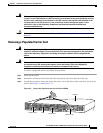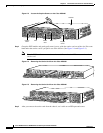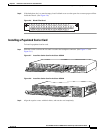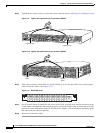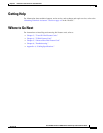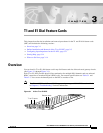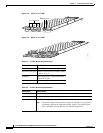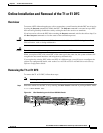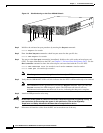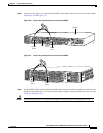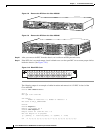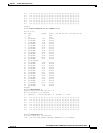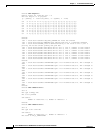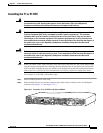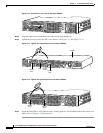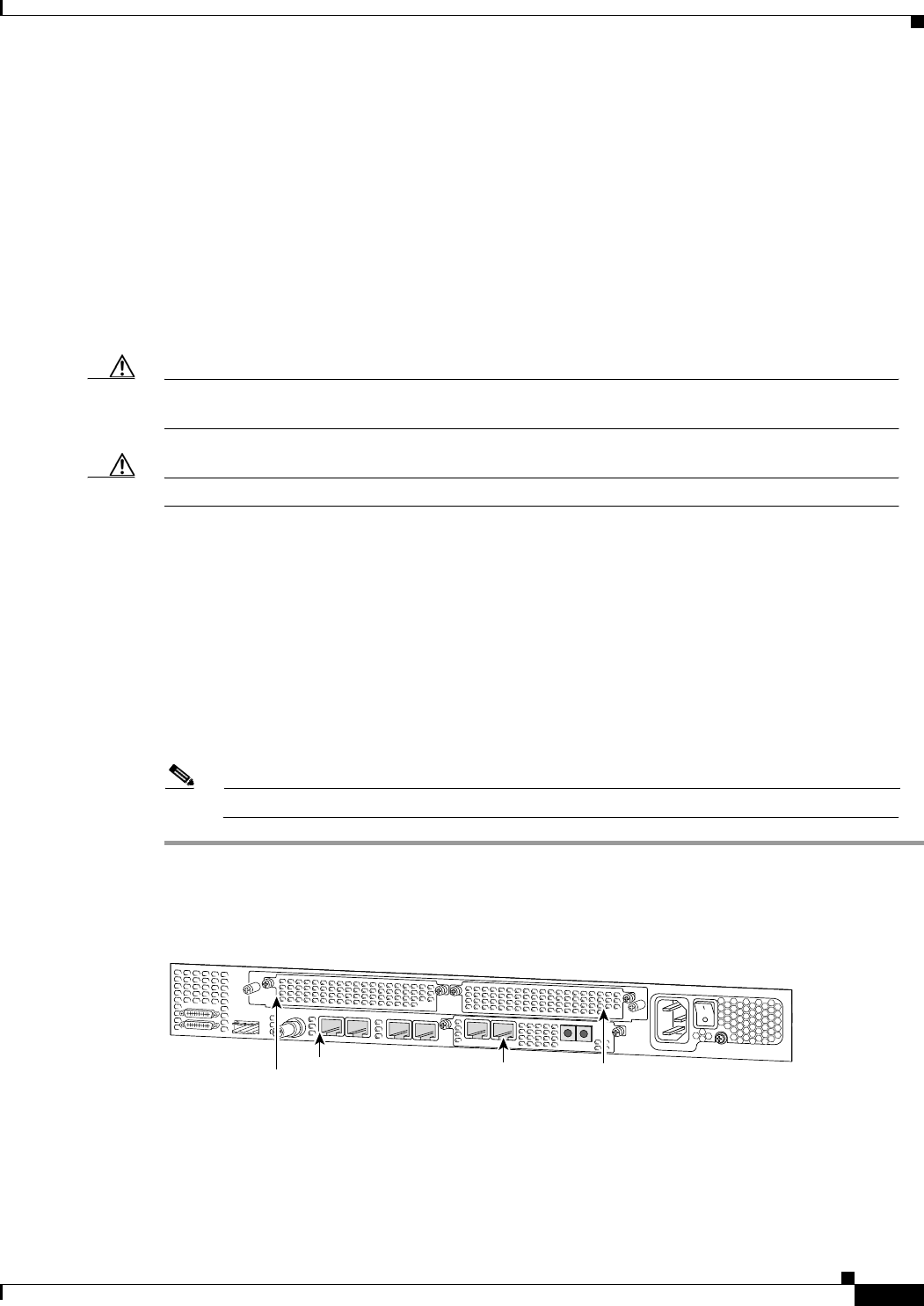
3-3
Cisco AS5350 and Cisco AS5400 Universal Gateway Card Installation Guide
78-13311-01
Chapter 3 T1 and E1 Dial Feature Cards
Online Installation and Removal of the T1 or E1 DFC
Online Installation and Removal of the T1 or E1 DFC
Overview
To remove a DFC without dropping any calls or connections, you will need to take the DFC out of service
by using the busyout command to disable the DFC. The busyout command is executed on a per DFC
basis and will gracefully disable the card by waiting for the active services to terminate.
If you have active calls on the DFC after executing the busyout command, wait for the calls to drop. Use
the show busyout command to view the status of the termination process.
Caution The online installation and removal (OIR) of new cards should be done ONLY during times of low
CPU utilization, such as during maintenance.
Caution To avoid erroneous failure messages, remove or insert only one DFC at a time.
When you replace a DFC with a new DFC of the same type in the same slot, the system software will
recognize the new trunk interfaces and bring them up automatically.
If you replace the existing DFC with a new DFC of a different type, you will have to reconfigure the
system. For configuration details, refer to the Cisco AS5350 and Cisco AS5400 Universal Gateway
Software Configuration Guide.
Removing the T1 or E1 DFC
To remove the T1 or E1 DFC, follow these steps:
Note Following these steps are examples of the output from each command.
Step 1 Determine which slot the DFC is in by entering the show chassis command in privileged EXEC mode:
Router# show chassis slot
Figure 3-4 Slot Numbering on the Cisco AS5350 Chassis
36006
Slot 2
Slot 0
Slot 1
Slot 3



